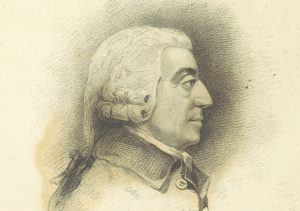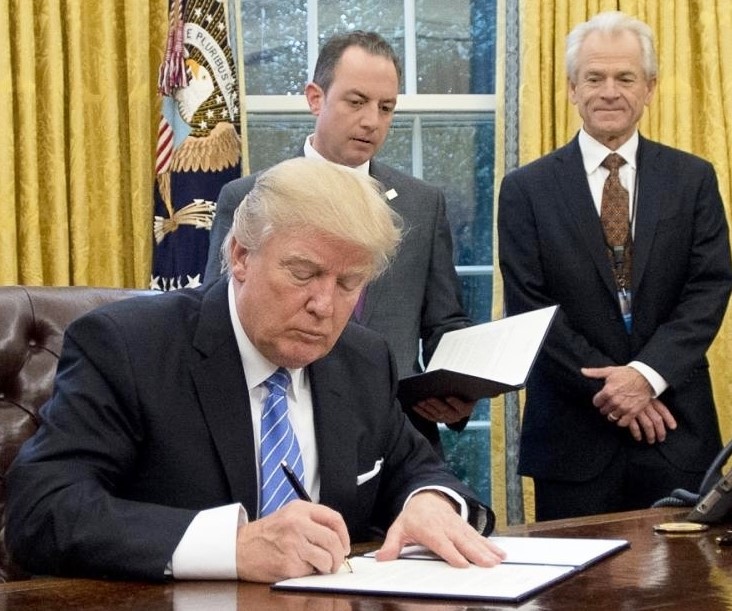


The separation of church and state is a given in the American creed. But one of the most influential figures in Protestant Christianity, hence American Christianity, had a more nuanced view of the interplay of the “two kingdoms.” Is this the true source of our ongoing culture wars?
Read More…
John Calvin (1509–1564) was a towering figure of the Protestant Reformation. The author of the magisterial Institutes of the Christian Religion, published in numerous editions between 1536 and 1559, Calvin was a second-generation Reformer. In that sense he was not engaged in the polemics that we see in Luther and Zwingli in their tussle with the Roman Catholic Church, nor their nearly equally intense disputation with each other. For that we can certainly be thankful. Calvin represents a more mature view, facing the question of how to provide structure and form to the church in Geneva. He also provides us with a substantial base of Protestant systematic theology—perhaps not carrying the same degree of authority as the Fathers and Tradition do within the Roman Catholic Church, but weighty and significant nonetheless.
The spread of the Protestant Reformation in Europe meant the loss of many of the traditional institutions of welfare, from hospitals to schools, and functions often performed by the monasteries. Need, however, did not disappear with the Reformation. Consequently, this led to the development of a new Protestant infrastructure of social welfare. This then raised the question of the place of civil government in providing for such need. What does the Bible and Christian theology understand about the role of government? What are the responsibilities and the limitations? Explorations of the voluntary principle, the place of Christian socialism, and the proper role of government continue to this day. The rise of the size of the state in the modern age with its associated tax, borrowing, debt, and spending means that these questions are still very pertinent. We should remember that Christians believe there is a proper and godly role for government, but not an unlimited one. Calvin, then, is a good place to begin.
Calvin set out his main exposition and rationale for civil government in Chapter XX of Book IV of The Institutes of the Christian Religion, the last chapter of his magnus opus and his most explicit statement on the role of civil government. We should not, however, make the mistake to think it was an afterthought. To the contrary, Calvin recognizes that he plete his great work without addressing the nature and role of governmental order for human society. We also have a variety of other sources, not least his Commentaries, where Calvin discusses specific verses of relevance in the biblical corpus.
In order to appreciate fully Calvin’s views on government, we need to consider his distinction between God as Creator and God as Redeemer. In the case of God as Creator, the glory of God manifest in the universe is discernible for all to see. This renders humanity inexcusable in respect of knowledge of God but more importantly for our purposes here establishes the idea of a created order for the good of all people for all time. Sin mars the created order, which is why nothing in that order can be sufficient for salvation (hence the need for God as Redeemer), but that order is nevertheless good and benefits all humanity regardless of their beliefs. This enables Calvin to draw a distinction between the civil realm and the spiritual realm—but not too sharp a distinction, as we will see. We can also see why this idea of the created order into which civil government is set creates a good, godly, and positive reason for government, as well as government’s responsibility to restrain evil.
Calvin does not fall into the trap of later evangelicalism of ignoring the social order of the world because our true home is heaven—a problem that continues to beset some evangelicals (although perhaps more in America than the U.K., with its history of evangelical social activism). To explain this more fully would require a separate post, but in essence some expressions of evangelicalism create a sacred/secular dualism that tends to demonize the latter.
For Calvin, though, God in his providence created order so as not to leave the human race in a state of confusion. He explains in mentary on 1 Peter 2:13 that, without order and the provision of civil government, human beings would live like beasts. Calvin recognizes that we are not simply individuals but part of a wider society, and that society needs social laws. He explains this in a passage in the Institutes, Book II.XII.13:
Since man is by nature a social animal, he is disposed, from natural instinct, to cherish and preserve society;and accordingly we see that the minds of all men have impressions of civil order and honesty. Hence it is that every individual understands how human societies must be regulated by laws, and also is able prehend the principles of those laws.
es quite close to a natural-law understanding of creation. Government clearly forms part of the created order, with rules of society restraining sin, disorder, evil, and injustice.From here, though, Calvin’s approach to government begins to diverge from others in the Reformation. Luther’s doctrine of the two kingdoms viewed civil government as the kingdom of the “left,” the world—instituted by God but for a very different purpose than the kingdom of the “right,” the spiritual realm. The two were necessary but with different responsibilities, which should not be confused. The more radical reformers, the Anabaptists, viewed government as an unnecessary evil. Consequently, the Christian should not serve as a magistrate or in the military or swear an oath in a civil court; the Lord’s people did not belong in any form of civil government—that was the world, from which they believed Christians were called out. They were to gather in munity of the saved. Calvin had a much more nuanced evaluation of the interplay of the church and the state than either Luther or the Anabaptists.
For example, Calvin advocates a role for the civil government in maintaining true faith, doctrine, and worship. To the modern mind, this smacks of theocracy. But Calvin saw no contradiction in government’s maintaining good order among all people and also providing a public manifestation of the Christian religion. Karl Barth, in his The Theology of John Calvin, notes that “the only distinctive Calvinistic feature in Geneva is the parallelism between the munity and the munity. … If [the munity] was to show itself worthy of the glory of its transcendent basis, it had to be serious about about moral sobriety.” Perhaps this is most clearly explained in the sections of the Institutes where Calvin deals with the nature of the law. He argues that civil government must have regard for both Tables of the Law (the traditional distinction between love of God and love of neighbor). Calvin is at least consistent. He argues that no government can be happily established unless piety is the first concern.
Alongside these spiritual purposes, Calvin argues that civil government is “to adapt our conduct to human society, to form our manners to civil justice, to conciliate us to each other, to mon peace and tranquillity.” In other words, government is enables us to live together in society. This is achieved by aligning our behavior and character to “civil justice.” We are, according to Calvin, to mon peace and tranquillity. This clearly implies more than merely the absence of conflict between individuals.
Calvin’s view of civil government includes the maintenance of civil defense, military action, and capital punishment (defense and order), but his view is not restricted to these matters. To put it another way, Calvin has concern for mon good. There is much for us to learn here. Government has the right to wage war against those who threaten mon tranquillity of all and who execute violent oppressions and vile misdeeds.
Calvin goes on to explain in Chapter XX of the Institutes that the need for civil government is no less than our need for the essentials of life—bread, water, light, and air. To dismiss it, as the Anabaptists did, would be an act of barbarity. This is a remarkably positive view. However, government cannot produce utopia or even effectively reshape or remould the world, for that would mean it could reshape human nature. Government’s role is limited.
In respect of the positive reasons for government, Calvin adduces four roles:
Maintenance of public orderProtection of private propertyEncouragement merceHonesty and modesty
We can see from this his concern for an ordered society and market, but one shaped by Christian faith and ethics.
In mentary on Romans 12:8 (the gift of ruling), Calvin makes clear that he views this gift as applying to civil government and not just the church, the role of those in government authority being to “provide for the safety of all” and to “watch day and night for the well-being of the munity.” The civil magistrate who is conscious of his appointment by and dependence upon God will exhibit “guardianship, goodness, benevolence, and justice.”
In both his Old mentaries and in the Institutes, Calvin notes the importance of civil government in providing care for the vulnerable, oppressed, poor, and innocent. He argues that government cannot perform its principal duty mon safety and peace for all unless they “give aid and protection to the oppressed.” This is at the very least a salient reminder of not making too many assumptions about Calvin and recognizing there is a genuine debate needed over the proper role of government regarding “the least among us.”
The levying of tax is a legitimate duty of government, and although it was permissible for revenue to be used to maintain their dignity of office, those in office “must remember, in their turn, that their revenues are not so much private chests as treasuries of the whole people.” Taxes are “subsidies of the public necessity” and should not be burdensome upon the poor. Our contemporary political leaders would do well to remain conscious of both of those injunctions.
But how was this to work in actual practice? For Calvin, the deacon was an agent of social transformation, overseeing the provision of social welfare within and without the church. This was the voluntary principle in action. Work itself was endowed with moral purpose and dignity, the fruits of creation were to be enjoyed (Calvin had a cellar of fine wine), there was to be no begging, and laws were passed to ensure that social solidarity was achieved through the central management of funds for social welfare through the “hospital” and the provision of public education. A rather rich mosaic. And for the good of the munity, money would now be lent at interest, in particular for social and investment purposes (rather than excess consumption), with rates ranging from 5% to 6.67% between 1541 and 1557 (though Calvin pressed for rates to be kept low). Usury, traditionally lending at interest, was now defined as lending at exorbitant rates. The market was also to play its role in ensuring the flourishing of all in society.
We should mention Calvin’s view on obedience to civil government. The principle is clear, since government is ordained by God, that the magistrate worthy of honor. This includes paying taxes, obeying laws, and undertaking public office. Obedience is also required, according to Calvin, to the unjust magistrate or bad king. Calvin notes that the Book of Samuel points out the excesses of kingship, but the principle of obedience remains. The exception is when obedience to the king leads away from obedience to the Lord himself. Calvin is a little hazy on the precise relationship between obedience to God and to man; however, notwithstanding the danger of anachronism, it would seem unlikely that he would have approved of church closures due to COVID.
Calvin painted a rich canvas in his discussions of the role of civil government. There were clearly positive elements to government, instituted by God, but also limits. The dignity of the human person shines through. The aim was the flourishing of society, good munal reciprocity, and the dignity of work. The moral law remains a proper concern of government. The purpose of government should be neither overstated nor understated, the voluntary principle remaining at the heart of welfare provision. Food for thought indeed.









